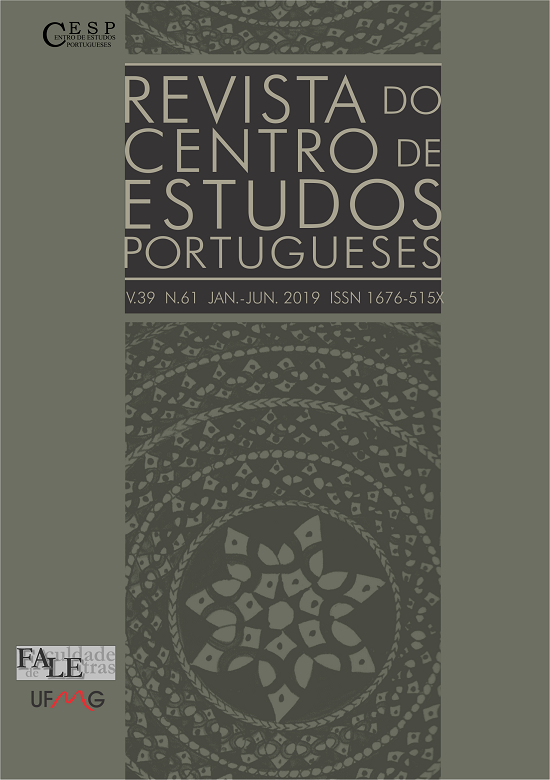As mulheres do império: uma leitura de Ana de Amsterdam / Women’s Empire: A Reading of Ana de Amsterdam
DOI:
https://doi.org/10.17851/2359-0076.39.61.145-160Palavras-chave:
Ana de Amsterdam, Ana Cássia Rebelo, diário íntimo, literatura de testemunho, blogs, diary, testimonial literature.Resumo
Resumo: Enquadrado no bojo da produção identificada como “literatura dos retornados”, o interesse principal de Ana de Amsterdam (2016a), de Ana Cássia Rebelo, não recai nas imagens traumáticas do retorno ou na violência praticada entre colonizadores e colonizados, como é recorrente no gênero. De forma até sintomática, as lembranças de África são esporádicas na menina de cinco anos que deixou Moçambique junto à família. Em seu lugar, a exuberância de uma Índia portuguesa sonhada e projetada por ela ocupam as lacunas de um presente insatisfatório, dividido entre a criação dos três filhos de um casamento em crise e o emprego burocrático desempenhado numa Lisboa pouco atrativa. Em ambos, tanto na Goa portuguesa como no trajeto para o trabalho, despontam narrativas de mulheres que constituem a síntese entre o diário íntimo de Ana e a escrita testemunhal da diáspora. Numa primeira parte do estudo, recupera-se a gênese do romance no formato do blog assinado pela autora, evidenciando a “escrita do eu”, nos moldes dos estudos de autobiografias, diários e afins. O segundo momento volta-se para a escrita testemunhal no lastro da narrativa pós-colonial e também da pós-memória. Em comum, os dois planos tratam da perspectiva feminina, seja na batalha contemporânea da cosmopolita Lisboa, seja nos desdobramentos silenciados do pós-colonialismo, em meio às histórias duplicadas de outras tantas Anas.
Palavras-chave: Ana de Amsterdam; Ana Cássia Rebelo; diário íntimo; literatura de testemunho; blogs.
Abstract: Framed in the center of the production identified as “literature of the returnees”, the main focus of Ana de Amsterdam (2016a) by Ana Cássia Rebelo, does not lie in the traumatic images of the return or in the violence practiced between colonizers and colonized, as it is usually the case in this genre. Somehow, even symptomatically, African memories are sporadic in the five-year-old girl who left Mozambique with her family. Instead, the exuberance of a Portuguese India, dreamed and projected by her, occupies the gaps of an unsatisfactory present, dividing herself to raise three children of a marriage in crisis and work in the bureaucratic employment situated in an unattractive Lisbon. In both, Portuguese Goa and on the way to work, narratives of women emerge and represent the synthesis between Ana’s private diary and the testimonial writing of the diaspora. In a first part of the study, the genesis of the novel is recovered in the form of a blog signed by the author, emphasizing the “writing of the self”, in the molds of autobiographies, journals and etc. The second moment turns to the testimonial writing in the basis of the postcolonial narrative and also of the post-memory. In common, the two plans deal with the feminine perspective, whether in the contemporary battle of cosmopolitan Lisbon or in the silenced developments of postcolonialism, in the middle of the duplicate stories of so many Anas.
Keywords: Ana de Amsterdam; Ana Cássia Rebelo; diary; testimonial literature; blogs.










